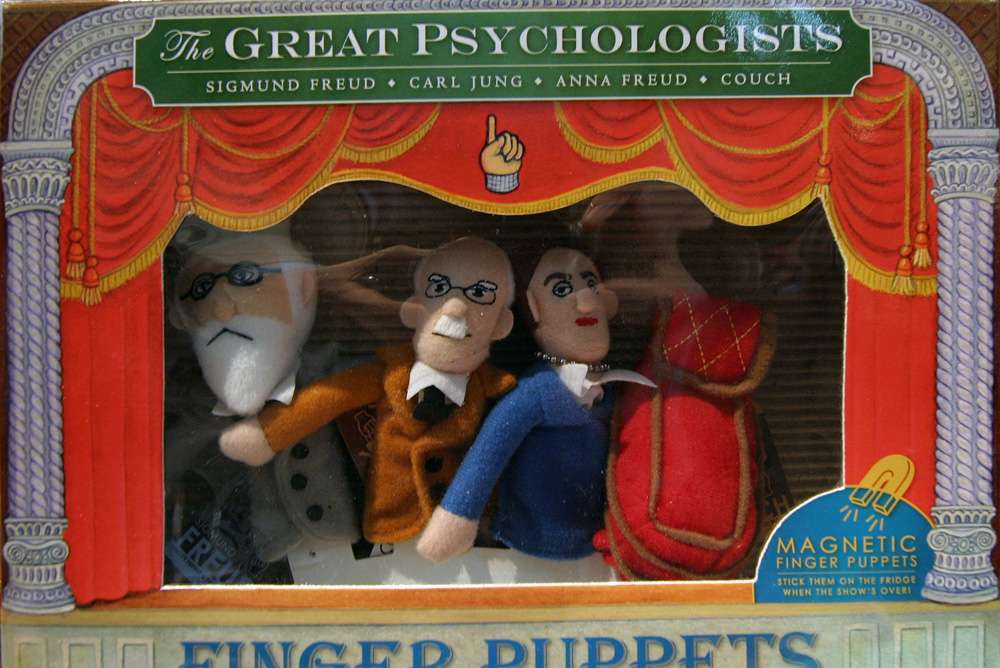Texas Can't Restrict Candidates from Calling Themselves Psychologists, or Counseling People, Just for Not Meeting Occupational Licensing Requirements
A state can't make it illegal to call oneself a psychologist or to enforce laws "limiting the ability of individuals to dispense personal advice about mental or emotional problems based on knowledge gleaned in a graduate class," according to an interesting opinion from the Fifth Circuit Court of Appeals in regarding a law in Texas. (The decision is from last month, but just came to my attention this week.)

Mary Louise Serafine sued Tim F. Branaman and Darrel D. Spinks, the heads of Texas State Board of Examiners of Psychologists, over their official demand that, while she was running for state Senate as a Republican in 2010, she cease describing herself as a "psychologist" and that she "desist from offering or providing psychological services." (She described herself as an attorney and psychologist on her campaign website.)
Serafine insisted that this demand violated the First and Fourteenth Amendments. She is not an officially licensed psychologist by Texas law, nor does she have a degree in psychology. She did do a four-year post-doc fellowship at Yale (where she got her law degree) in psychology and was, for a time, a member of the American Psychological Association.
In January 2011 the state Attorney General's office, in response to the Board's complaint, sent Serafine a threatening letter about her illicit use of the term.
Serafine claimed that the relevant state law the Board was enforcing "infringed her political speech, commercial speech, equal protection rights, and right to earn a living. She also challenged the Act as vague, overbroad, and a prior restraint."
A district court rejected all her claims, and she appealed.
The Fifth Circuit Court of Appeals upheld some of her arguments. In doing so, they presented some interesting thoughts on the whole "professional speech doctrine" that the Board wanted to use to quash Serafine's expression, and helped limit the overbearing enforcement of professional licensing laws.
The Firth Circuit points out that "the extent to which a state can use its licensing power to restrict speech is unsettled. The Supreme Court has never formally endorsed the professional speech doctrine" and that "Assuming that the professional speech doctrine is valid, its application should be limited."
Further, "Where the personal nexus between professional and client does not exist, and a speaker does not purport to be exercising judgment on behalf of any particular individual with whose circumstances he is directly acquainted, government regulation ceases to function as legitimate regulation of professional practice with only incidental impact on speech; it becomes regulation of speaking or publishing as such, subject to the First Amendment…"
The Fifth Circuit concludes, then, that:
Serafine's speech on her campaign website was far removed from the context of professional speech. She was not providing advice to any particular client but communicating with the voters at large, so the professional speech doctrine is inapplicable. Serafine's campaign statements are entitled to full First Amendment protection….[and since] Serafine was seeking votes, not clients…the inclusion of "psychologist" on the website was not commercial speech, and therefore the decisions involving a state's legitimate power to restrict the use of titles in the commercial context are inapplicable.
The Fifth Circuit also considered her claim that the statues she challenged, Sections 501.001 through 501.505 of the Texas Occupational Code, were unconstitutionally overbroad, and agreed.
It concluded, after noting that the giving of psychological advice, even if paid for it, is not in and of itself "commercial speech" which is properly construed as speech which merely proposes a commercial interaction, that aspects of the statute as written are indeed overbroad.
Why? While the law "certainly includes professional psychologists, it also applies to other professionals and citizens. Besides leaders for AA, Weight-Watchers, or other self-help groups, someone who has taken graduate classes in psychology, fitness, or counseling and has written a marriage-advice column or parenting blog could conceivably be within the ambit of" the law.
The Court refers to a previous case I reported on in which occupational licensing laws in Kentucky regarding psychology were literally used to censor a newspaper advice column, until the columnist, John Rosemond, won his suit.
A press release from Serafine points out that the precedent in her case could, and likely should, affect other existing state-level psychology licensing schemes.


Show Comments (10)